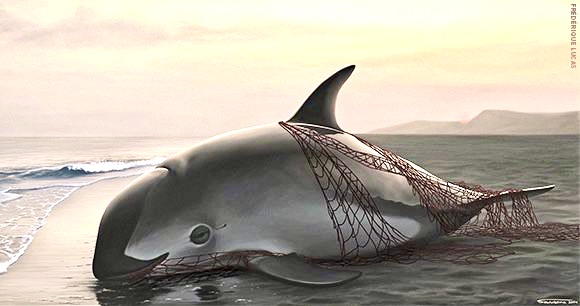
The Critically Endangered Vaquita Porpoise Is On The Brink Of Extinction With Only 10 Remaining In The Wild
Illustration by Frédérique Lucas
You can help all animals and our planet by choosing compassion on your plate and in your glass. #GoVeg
RELATED ARTICLES
Banning Cruelty: New Legislation Aims To Ban Octopus Farming In The U.S.
New bipartisan legislation has just been introduced in the U.S. to ban commercial octopus farming and prohibit imports of farmed octopus from foreign countries.
The...
Outrage In Yellowstone! Grizzly Bear Killed By Wildlife Officials & Left With Head & Paws Cut Off
Photo by: Trisha McFarland / Cowboy State Daily
A photo of a dead grizzly bear with its head and paws cut off has caused an...
Inside Florida’s Illegal Horse Meat Trade: Undercover Footage Shows Racehorse Being Shot & Butchered
A heart-wrenching discovery of illegal horse slaughter has emerged, with video footage exposing the tragic killing of a racehorse named 'Funny Biz,' who was...
Popular stories
News
Three Poachers Have Been Arrested For The Brutal Killing Of Four Rhinos For Their Horns In Kruger National Park
South African National Parks (SANParks) confirmed that on the morning of July 1st, a tourist reported to the Malelane Ranger station in Kruger National...
News
Bill To End The Use Of Steel-Jaw Leghold Traps & Snares In National Wildlife Refuges Has Been Reintroduced In The U.S.
Hopeful news as the Refuge from Cruel Trapping Act was reintroduced last week in the U.S. House of Representatives. The bill would prohibit the use...
News
ASPCA Disaster Response Team Is On The Ground In Florida Conducting Search & Rescue Efforts For Animals Displaced by Hurricane Ian
The ASPCA is among the many organizations on the ground in Fort Myers, Florida, joining search-and-rescue efforts and supporting local emergency sheltering and pet food distribution...


